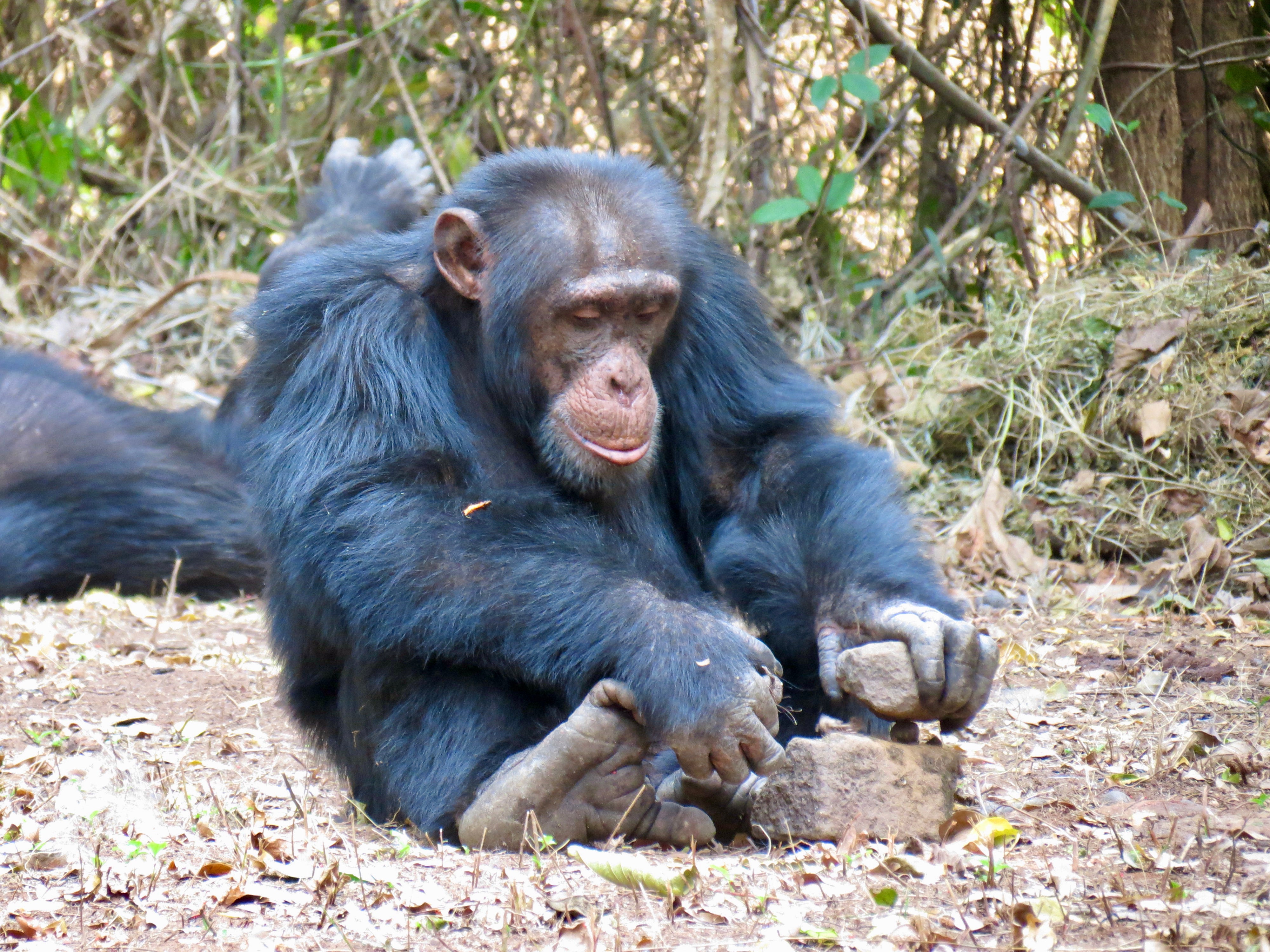Chimpanzee culture ‘more similar’ to humans’ than previously realised, researchers say
Cumulative learning processes required to solve complex problems are closer to human type behaviours than had been recognised before

Human culture is not only complex, but it is also cumulative. We learn things from copying more experienced or older members of our species, but over the generations our skills and technologies are passed on, and therefore become increasingly complex, and usually, more efficient.
This is not usually regarded as being the same in the animal kingdom, where behaviours can be learnt, and though they can in some cases be passed on, are most often relearnt by successive generations rather than being passed on.
But new research suggests this may not be the case among chimpanzees, and cumulative knowledge could be a crucial aspect of chimpanzee culture.
One of the most sophisticated behaviour by wild chimpanzees is nut cracking. In Bossou in southeastern Guinea, some groups of chimpanzees living in the area are known for using a stone hammer and an anvil-type tool set which they use to crack open the nuts of the oil palm tree.
Researchers at the University of Zurich (UZH) have now used field experiments which suggest that this type of complex tool usage and problem solving cannot simply be developed independently by chimps unfamiliar with the concept of nut cracking.
Lead by UZH professor Kathelijne Koops, the team carried out four experiments with wild chimps, also in Guinea: First, the chimps were presented with oil palm nuts and stones. Next, the researchers added a palm fruit to the experimental setup. In the third experiment, the nuts were cracked open and placed on top of the stones. And finally, the chimps were presented with another, easier-to-crack species of nuts – called coulas – together with stones.
Essentially, the chimps did not know what to do to access the nuts, and even after more than a year, the 35 chimpanzee groups which were exposed to the materials had not devised a method for accessing the nuts.
The researchers said of the 35 visiting groups 11 of them closely inspected the nuts and stones.
They said the chimpanzees were more likely to explore the experiments when visiting in bigger parties, but nonetheless, did not begin to experiment with much success.
Only one female chimpanzee was observed eating from the palm fruit, but on no occasion did the chimpanzees crack or eat either oil palm or coula nuts, the researchers said.
“Our findings suggest that chimpanzees acquire cultural behaviours more like humans and do not simply invent a complex tool use behaviour like nut cracking on their own,” said Professor Koops.
She said the presence of a model from whom to learn appears to be the missing piece of the jigsaw.
“Our findings on wild chimpanzees, our closest living relatives, help to shed light on what it is (and isn’t) that makes human culture unique. Specifically, they suggest greater continuity between chimpanzee and human cultural evolution than is normally assumed and that the human capacity for cumulative culture may have a shared evolutionary origin with chimpanzees.”
The research is published in the journal Nature Human Behaviour.
Join our commenting forum
Join thought-provoking conversations, follow other Independent readers and see their replies
Comments
Bookmark popover
Removed from bookmarks